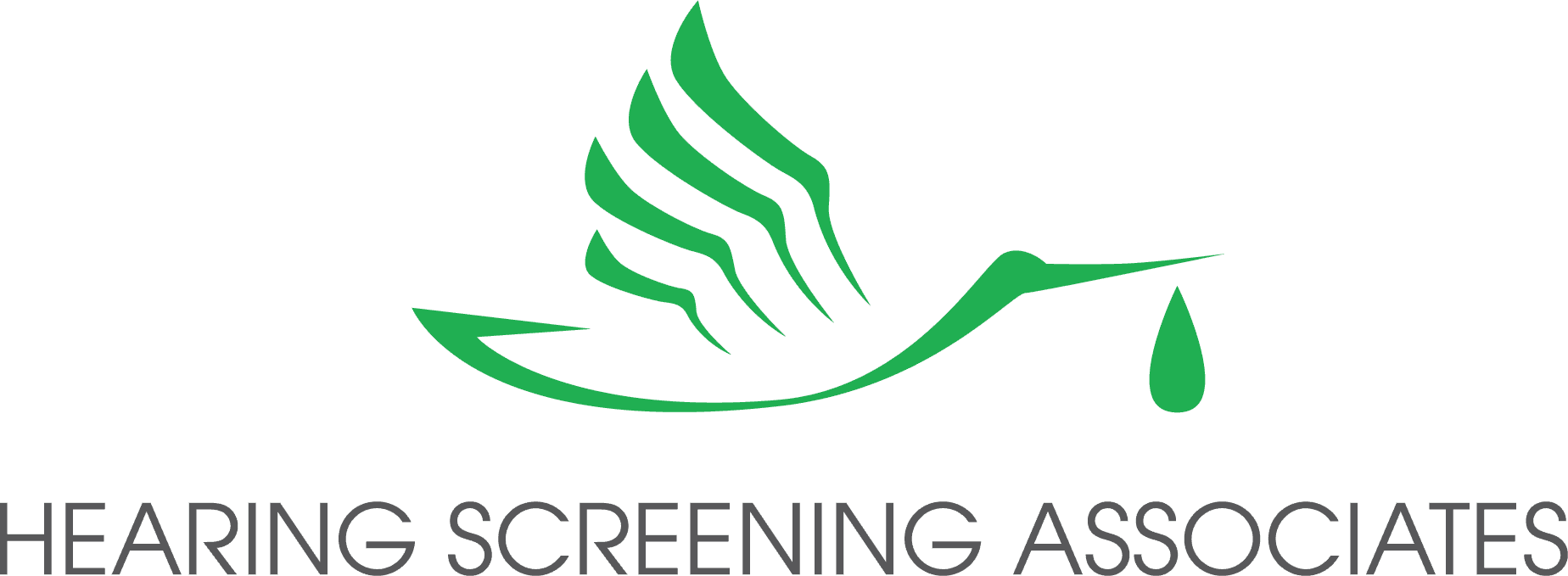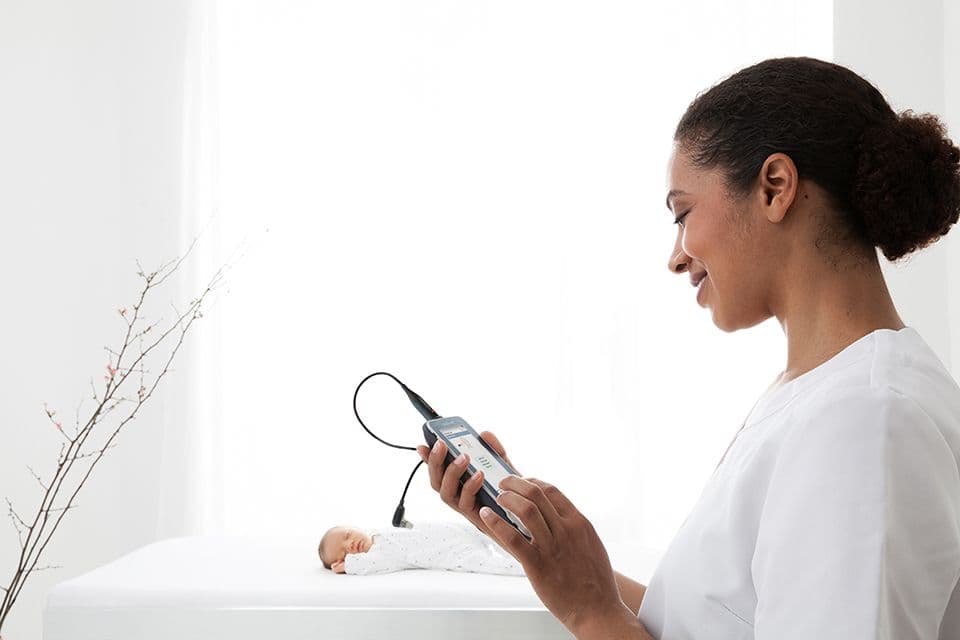Information for Parents on Newborn Hearing Screening
Feel confident about Newborn Hearing Screening
Your child’s hearing is crucial for their speech and language development. By staying informed and proactive, you can help ensure they reach their full potential. The newborn hearing screening, performed shortly after birth, helps detect any hearing loss early on, allowing for timely intervention and support.
This guide is here to provide you with the information you need to understand newborn hearing screening.
Newborn Hearing Screening - Parent’s Guide
Hearing loss affects 3 in 1,000 newborns. Hearing within normal limits is essential for speech and language development, particularly in a child’s first few years. Hearing loss can go undetected until a child shows symptoms of delayed speech. Now, testing is completed at birth to identify hearing loss so appropriate treatment can be initiated to avoid these delays. Testing is non-invasive and can identify even mild hearing loss, which can be temporary due to fluid in the ear canal or permanent.
Hearing screening is part of the many screenings provided for your newborn prior to discharge. If the screening does not result in a pass, a repeat test will be scheduled within 10-14 days. If the second test does not result in a pass, a diagnostic evaluation will be recommended. If a child is found to have hearing loss, there is a network of professionals who can follow up with appropriate treatment and recommendations to overcome developmental challenges.
Although the first hearing screening will show if additional testing is needed, it is important to monitor your child’s speech and language abilities as they continue to grow. Milestones for speech and language development will be provided on the back of the results form as a guideline. If you have any concerns, ask your pediatrician or family physician.
There are several factors that can increase the risk of hearing loss in newborns:
• Genetic Factors: Family history of early, progressive, or delayed onset, permanent childhood hearing loss.
• Infections During Pregnancy: Infections such as rubella, cytomegalovirus, herpes simplex virus, syphilis, toxoplasmosis, Zika, meningitis, encephalitis, and varicella can affect the baby’s hearing.
• Premature Birth: Babies born prematurely are at a higher risk of hearing loss.
• Birth Conditions or Findings: Craniofacial malformations, including microtia/atresia, ear dysplasia, oral facial clefting, white forelock, and microphthalmia. Congenital microcephaly or hydrocephalus, and temporal bone abnormalities.
• Neonatal Intensive Care Unit (NICU) Stays: Extended stays in the NICU, especially if the baby requires mechanical ventilation or has severe jaundice, can increase the risk.
• Events associated with hearing loss: Injuries during birth that affect the baby’s oxygen supply can lead to hearing loss, or significant head trauma to the basal skull/temporal bone.
• Maternal Health Conditions: Conditions such as diabetes, high blood pressure (preeclampsia), and drug or alcohol use during pregnancy can contribute to hearing loss.
• Certain Syndromes: Over 400 syndromes have been found to have a connection with atypical hearing thresholds. These syndromes are linked to genetic mutations that impact the auditory system.
Identifying these risk factors early allows for timely intervention and support, which can significantly improve outcomes for children with hearing loss.
Hearing screening for newborns is a quick and non-invasive process. Here’s how it typically works:
• Otoacoustic Emissions (OAE) Test: A small probe is placed in the baby’s ear canal. The probe emits Otoacoustic Emissions (OAE), which are very soft sounds that are generated in the cochlea (inner ear) in response to a sound stimulus. The hair cells in the cochlea are set into vibration when we hear sounds and transform those mechanical movements into neural signals. In response to the stimulus, an echo is generated by the hair cells and these vibrations are transmitted as soft sounds from the inner ear, through the middle ear, to the outer ear.
• Automated Auditory Brainstem Response (AABR) Test: Small electrodes are placed on the baby’s head and soft earphones are placed over the ears or eartips in the ears. The earphones or eartips play sounds, and the electrodes measure the brain’s response to these sounds. This test checks the auditory nerve pathways from the ear to the brainstem.
Both screenings can be done while the baby is sleeping. If the baby does not pass the initial screening, a follow-up test is usually scheduled to confirm the results.
A “Pass” result means no further testing is needed at this time. It is important to continue monitoring your child’s hearing and speech development as they grow, as hearing loss can develop later in infancy or childhood.
A “Did Not Pass” result means that your baby needs further testing. You should receive a rescreening within 10-14 days. There are several reasons why your baby may not pass a newborn hearing screening. These reasons include:
• Hearing Loss
• Debris in the Ear
• Baby’s Activity
• External room noise
A timely follow-up with your birthing facility or with a Pediatric Audiologist is important.


